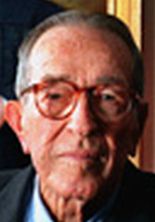- Griffin Bell
Infobox US Cabinet official
name=Griffin Bell

order=72nd
title=United States Attorney General
term_start=1977
term_end=1979
predecessor=Edward H. Levi
successor=Benjamin Civiletti
birth_date=birth date and age|1918|10|31
birth_place=Americus, Georgia ,
United States
party=DemocratGriffin Boyette Bell (born
October 31 ,1918 ) is an American lawyer and former United States Attorney General. He served as the nation's 72nd Attorney General under the Carter Administration. He is an attorney with the law firmKing & Spalding .Early years and legal practice.
Bell was born in
Americus, Georgia , He attended several public schools before enrolling at theGeorgia Southwestern College and then at theWalter F. George School of Law atMercer University . DuringWorld War II , Bell served in theUnited States Army Quartermaster Corps from 1942 to 1946. He practiced law atKing & Spalding in Georgia from 1948 to 1961. He returned to the firm before and after his service as the United States Attorney General. Bell handled many high profile cases after leaving office, such as the internal investigation concerning the cash management practices ofE. F. Hutton & Co. .Political career
President
John F. Kennedy appointed Bell, who had been the co-chairman of Kennedy's presidential campaign in Georgia, to theU.S. Court of Appeals for the Fifth Circuit in 1961. He served for more than fourteen years on the Fifth Circuit. He often played an instrumental role in mediating disputes between the court's factions during the zenith of theAmerican Civil Rights Movement .He resigned from the court on March 1976 to resume his law practice at King & Spalding. In December 1976, President
Jimmy Carter nominated him to become the 72nd Attorney General of the United States. He served until August 1979. His Watergate era nomination was initially controversial because he is a Southerner and a friend of the President. However, by the time he left office, Bell had allayed the concerns and won the praise of most of the critics in theUnited States Senate and the media. He was credited with bringing needed independence and professionalism to the Department of Justice. Unprecedented and not duplicated since, Bell posted publicly every day his third party contacts, including meetings and calls with the White House, members of Congress, or other non-Justice Department persons to rebuild confidence in the Department of Justice.Bell led the effort to pass the
Foreign Intelligence Surveillance Act in 1978. The Carter administration, advised by Bell, greatly increased the number of women and minorities serving on the federal bench. Bell recruited an Eighth Circuit judge, Wade McCree, an African American, to serve as Solicitor General of the United States, and an African American lawyer for the NAACP Legal Defense Fund he had admired as a lawyer while a judge, Drew R. Days III, to head the Civil Rights Division. Bell successfully led the negotiations to divide his former appellate Court, the Fifth Circuit spanning from Georgia to Texas, into two courts: the Fifth Circuit based in New Orleans and the Eleventh Circuit based in Atlanta. Bell also led efforts to professionalize the Federal Bureau of Investigation after Watergate and recruited another federal appellate judge to recommend to the President as Director, Judge William Webster of the Eighth Circuit U.S. Court of Appeals. After Bell resigned as Attorney General in August 1979, President Carter thereafter appointed him as Special Ambassador to the Helsinki Convention.From 1985 to 1987, Bell served as a member of the Secretary of State’s Advisory Committee on
South Africa . In 1989, he was appointed Vice Chairman of PresidentGeorge H.W. Bush ’s Commission on Federal Ethics Law Reform. During theIran Contra Affair investigation, he was counsel to President George H.W. Bush. As a lawyer during this period, he specialized in corporate internal investigations, many that were high profile, like that for E.F. Hutton following federal indictments for its cash management practices.ociety
Bell, whose wit has been widely reported, was an especially popular member of the Carter Cabinet and well-known in the social scene. Bell introduced rooster pepper sausage as one of the more publicized lore in Washington. The dish, made from rooster spur pepper from Georgia, was widely rumored to be an
aphrodisiac . It was maintained that he slipped supplies of the potent sausage into the White House to President Carter through their mutual close friend, Charles Kirbo. The Alfalfa Club is a century-old Washington institution of social, political and business America. At its annual dinner in 1979, Bell was the Alfalfa nominee for President of the United States and quipped as he began his acceptance speech that he hoped that President Carter would now understand the full meaning of his warning that he would not serve as Attorney General during the President's re-election campaign.Bell was the first cabinet official named in Mr.
Richard Blackwell 's list of best dressed Americans in 1978, citing the former Attorney General's penchant for wide, sleek, bold-colored ties that were emblematic of mid-to-late 1970s fashion.See also
*
List of United States political appointments that crossed party lines ources
* Bell, Griffin B. and Ronald J. Ostrow."Taking Care of the Law" Morrow. 1982. ISBN-13: 978-0688011369
* Murphy, Reg, "Uncommon Sense, The Achievement of Griffin Bell," Peachtree Press.
* [http://www.law.mercer.edu/about/news/commencement2002.cfm Bell's Mercer Commencement Address]
* [http://www.georgiaencyclopedia.org/nge/Article.jsp?id=h-1027 Georgia Encyclopedia article.]
Wikimedia Foundation. 2010.
